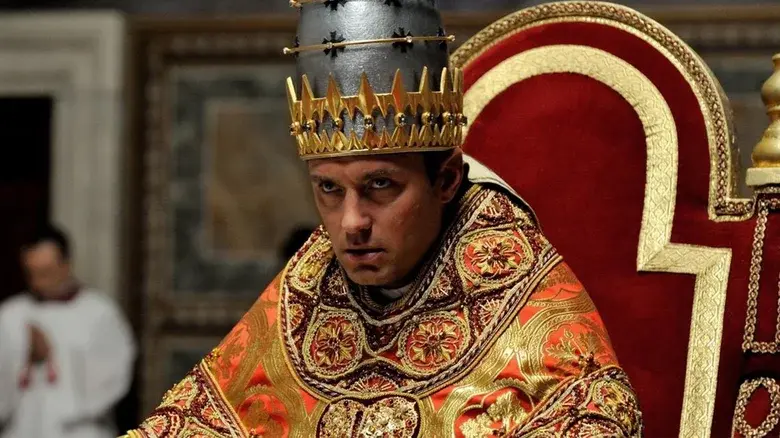Answer:
A FULL DAY’S WAGES CAUSE JESUS WAS BASED. Shout out The Kids Bulletin.
call me a dork ruining everyone’s fun but this is just bog-standard calvinist ideology used to brainwash children. it’s meant to be a metaphor for how deathbed conversion to christianity only happens because god pre-ordained it, meaning some souls are predestined to go to heaven, and other souls are predestined to go to hell, entirely based on the whims of how God created those souls at the beginning of time. If you convert to christianity on your death bed, it’s because God designed that to happen. If you don’t, you to go hell and burn forever, because God designed that to happen. I hate this shit. even if it has the surface appearance of Jesus advocating “communism,” (people really need to stop conflating the vague pacifistic egalitarianism and asceticism and charity of early christianity, with the modern communist movement. Comrade Rosa cleared this up 118 years ago.).
The parable itself can’t really be about predestination since that concept wasn’t around until much later than the parable itself was written or included into the Bible. I don’t think it’s interpreted that way by catholics today either.
copy pasting from my other post to save effort since I keep having the same objection brought up to me.
This image isn’t just a parable by itself. It’s also paired with a spoonfed interpretation and a question/answer quiz format (turn the page upside down to see the “correct” answer to our loaded question!).
the only reason any of us turns to God is because He gave us that grace. Some people have to live their whole lives without God’s Grace until the very end, but some of us have been given grace all our lives.
That is absolutely a veiled appeal to predestination. If your conversion to Christianity isn’t of your own free will, but rather because God ordained that you would receive His grace at some point in your life that He predetermined, then that is a form of predestination.
I don’t see how anyone could get Communism out of this either, since the point of the story isn’t the egalitarianism of some boss paying all workers the exact same amount of money regardless of how much they worked (which isn’t what Communism is anyway… bosses hiring people under Communism?! Even the most incomplete interpretation of Marxism shouldn’t lead to this.) but it’s a strained analogy for predestined religious conversion. The Boss hiring workers is God. The workers are souls. The day is the life of the soul. workers who get hired at the end of the day are “saved” at the end of their life by God’s grace. The workers hired at the beginning of the day are “saved” at the beginning of their life by God’s grace. The boss decides who gets saved by deciding who gets hired. The workers who don’t get hired at all are not saved by God’s grace and go to hell. This third part is left out of the story but it’s there by implication. After all, what is God saving us from? Eternal separation from God. i.e. Damnation. Which is hell.
calvinist ideology

I read a neat book about the parables that did a materialist analysis of them from the perspective of poor farming peasants like Jesus’s audience presumably was. He thought we had a tendency to read these in a weird allegorical way that Jesus never tells anyone to do, and consequently we associate God with kings and bosses and powerful people that poor people in Palestine would have correctly identified as oppressors from an occupation that they had been trying to resist for decades.
He would say you’re right to pick up on how arbitrary it is and how angry it makes you feel because that’s what Jesus is also observing about life in his time. The parables end up being more of a reflection on effective praxis and resistance to a state that they were incapable of forcefully overthrowing.
I like this
The parable has nothing to do with predestination and every christian sect besides calvinism believes in conversion. I really can’t see where are you coming from with this comment.
From the text: “The only reason anyone turns to God is because He gave us that grace.”
Sounds like predestination to me. Or perhaps they mean to say that God changed his mind at the last minute? Or something. It’s not super clear.
Yea, I can see now how it can be interpreted that way. “Conversion only comes from a divine act of God” does sound closer to the belief in predestination than the interpretation of the parable I’m more familiar with
deleted by creator
copy pasting from my other post to save effort since I keep having the same objection brought up to me.
This image isn’t just a parable by itself. It’s also paired with a spoonfed interpretation and a question/answer quiz format (turn the page upside down to see the “correct” answer to our loaded question!).
the only reason any of us turns to God is because He gave us that grace. Some people have to live their whole lives without God’s Grace until the very end, but some of us have been given grace all our lives.
That is absolutely a veiled appeal to predestination. If your conversion to Christianity isn’t of your own free will, but rather because God ordained that you would receive His grace at some point in your life that He predetermined, then that is a form of predestination.
I don’t see how anyone could get Communism out of this either, since the point of the story isn’t the egalitarianism of some boss paying all workers the exact same amount of money regardless of how much they worked (which isn’t what Communism is anyway… bosses hiring people under Communism?! Even the most incomplete interpretation of Marxism shouldn’t lead to this.) but it’s a strained analogy for predestined religious conversion. The Boss hiring workers is God. The workers are souls. The day is the life of the soul. workers who get hired at the end of the day are “saved” at the end of their life by God’s grace. The workers hired at the beginning of the day are “saved” at the beginning of their life by God’s grace. The boss decides who gets saved by deciding who gets hired. The workers who don’t get hired at all are not saved by God’s grace and go to hell. This third part is left out of the story but it’s there by implication. After all, what is God saving us from? Eternal separation from God. i.e. Damnation. Which is hell.
deleted by creator
deleted by creator
Wait i grew up catholic and this parable is interpreted completely differently. It’s supposed to mean that salvation is guaranteed to everyone who wants (and asks for) it, and that feeling envy about people “not working hard enough” is not Christian behavior, because who are we to decide who gets salvation and who doesn’t, and because God’s love and salvation is unlimited and unconditional, so there’s no point in griping about someone else getting the same you got, if the source is infinite.
That whole calvinist, prosperity gospel stuff is definitely not there when I got taught this parable in catechism.
copy pasting from my other post to save effort since I keep having the same objection brought up to me.
This image isn’t just a parable by itself. It’s also paired with a spoonfed interpretation and a question/answer quiz format (turn the page upside down to see the “correct” answer to our loaded question!).
the only reason any of us turns to God is because He gave us that grace. Some people have to live their whole lives without God’s Grace until the very end, but some of us have been given grace all our lives.
That is absolutely a veiled appeal to predestination. If your conversion to Christianity isn’t of your own free will, but rather because God ordained that you would receive His grace at some point in your life that He predetermined, then that is a form of predestination.
I don’t see how anyone could get Communism out of this either, since the point of the story isn’t the egalitarianism of some boss paying all workers the exact same amount of money regardless of how much they worked (which isn’t what Communism is anyway… bosses hiring people under Communism?! Even the most incomplete interpretation of Marxism shouldn’t lead to this.) but it’s a strained analogy for predestined religious conversion. The Boss hiring workers is God. The workers are souls. The day is the life of the soul. workers who get hired at the end of the day are “saved” at the end of their life by God’s grace. The workers hired at the beginning of the day are “saved” at the beginning of their life by God’s grace. The boss decides who gets saved by deciding who gets hired. The workers who don’t get hired at all are not saved by God’s grace and go to hell. This third part is left out of the story but it’s there by implication. After all, what is God saving us from? Eternal separation from God. i.e. Damnation. Which is hell.
I want to preface that I haven’t practiced catholicism or any kind of christianity since my teenage years, so i really have no horse in this race. That being said, it surprised me that this parable was being interepreted in the “Salvation is limited, and God has already decided who’s getting it, and those who are getting it are going to do much better in life” light, one that is (to me) a weird protestant/american phenomenon that i didn’t know existed until later in life.
I agree with you that there’s nothing communist/marxist about the parable, because it flies in the face of all material analysis, and as you said, it doesn’t fit with even a cursory knowledge of the LTV. The wages are salvation, which comes from an unlimited source, not material wealth. I’m not interested in painting Jesus as some kind of proto-communist or leftist icon, other people have approached the manner much better than I could, and liberation theology is a valid starting point to resisting oppression (in my view). But this parable has nothing to do with it.
I see where you’re coming from with your criticism of the implications of the parable, but tbh i don’t feel qualified to make theological judgements about it, I was just talking about what I learned growing up, and interpreting it as “salvation is universal, no matter if you jump on the bandwagon early or late”.
Thanks for your thoughtful post. I must confess I was wrong to characterize it as “Calvinist” as I did not realize it was from a catholic website, and I was knee-jerk calling it calvinist because it seemed to me to be supporting predestination (even if in a very subtle way).
No problem! Catholics, especially in the Global North have some weird protestant-like takes that go against doctrine, so it’s understandable some protestant work ethic
 may slip in, even in catechism.
may slip in, even in catechism.(in my experience) Global South Catholics vary a lot based on their class character, which is why I support liberation theology as a basis for social movement so much.
Calvinist
I’ll hear none of this foul heresy

yeah that’s why its in memes
but is it a meme? It seems to me to be a piece of religious propaganda from www.thekidsbulletin.com.
that’s because it is religious propaganda from the kids bulletin, but it is is also funny. It can be both. I’m not advocating anyone teach their children to be a catholic or christian in general and do understand what you’re saying, so if you’d like I will delete the post (i should’ve just posted it in the dunk tank!)

nah you good

jesus really said “from each according to their ability, to each according to their needs” huh
kind of his whole thing Im pretty sure
Showing up for an hour and telling the dudes who did literally eight times as much work as me and got paid the same amount to go to Hell if they have a problem with the arrangement (literally the Word of God)
This Jesus dude sounds like a woke communist trying to spread his evil woke mind virus.
we are stretching the definition of meme pretty far at this point
Yeah, not nearly wordy enough to be a true leftist meme.
Man, I have been in the Dunk Tank long enough that I now imagine a Liberal or PatSoc argue that this proves Christianity is incompatible with Marxism, since this goes against LTV.
The contrived wiggly line puzzle is really cute lol
I love commie Jesus.
One of my favorite parables. Gotta love that God!
Brings back fond memories of going to sunday school as a kid













